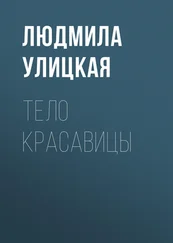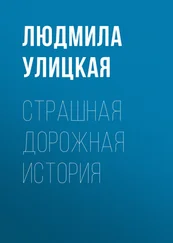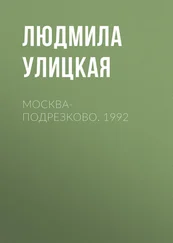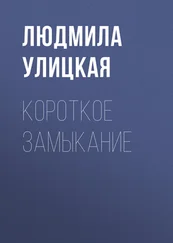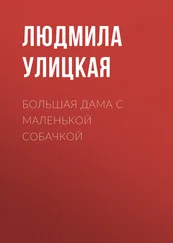a promise of relief through sculpted prayer,
a promise of tumultuous torrents bringing.
Though rustling maple leaves astound the gaze
and unconsumed by flames the eye astonish,
Though graves like martyrs’ pyres accusing blaze,
the calendar has yet to be abolished.”
“I think that is a very fine poem.”
“It’s in memory of my parents. They died in a car accident ten years ago,” Masha said, amazed how easy it was for her to tell him something she had never spoken about to anyone else.
“They lived their lives happily together and died on the same day?” Alik looked at her seriously.
“There’s nothing else left now but to believe that.”
Some marriages are made in bed, while others burgeon in the kitchen to the metallic music of the kitchen knife and the egg whisk; some couples are nest builders, forever redecorating, snapping up bargain lots of timber for their dacha plot, nails, drying oil, and fiberglass wrap; other couples live for blazing, set-piece rows.
Masha and Alik’s marriage was consummated in conversations. This was their ninth year together, but every evening when he came home from work, the soup would be left to get cold and the rissoles to burn while they told each other about the important events of the day.
Each of them lived life twice over: the first time directly, the second time in selective paraphrase. The paraphrase did slightly rearrange events, giving more prominence to something which had been less significant at the time and bringing a personal coloration to what had happened, but both of them were perfectly aware of that and took the other’s interests into account when deciding what to offer.
“Here’s something you’ll like,” Alik would say, stirring the hot soup in his bowl, “I’ve been saving it up for you all day.”
There would follow a description of a ridiculous row in the Metro that morning, or of a tree in the yard, or a conversation with a colleague. Or Masha would lug an old volume into the kitchen with so many bookmarks in it they looked like noodles, or a samizdat brochure and slew it around at the right place and say, “Here’s something I picked out specially for you.”
In recent years they had partly exchanged roles: previously he had been the one who read more and dug deeper into cultural problems, but now his researches left him no time for intellectual distractions, especially since he couldn’t yet move on from working in the ambulance service which, apart from being professionally interesting, left him with enough free time for research work in the laboratory. He had completed his postgraduate studies through extension courses, which had suited him fine.
Masha sat at home with her son, a unique little boy who could keep himself meaningfully occupied from morning till evening. She churned out entries for a journal of abstracts, read large numbers of books avidly, and wrote poetry and other less readily classifiable texts which seemed to have been plagiarized from a variety of other writers. She hadn’t yet found her own voice and was pulled in different directions—sometimes toward Rozanov, sometimes to Kharms.
Her poems were also written in different voices, and although they had been published along with those of other poets in magazines, hers had seemed peripheral and unremarkable. On the page they hadn’t looked like hers, the overall selection didn’t seem to have been made very well, and to crown it all there had been two printing errors. Alik was terribly proud and bought up a whole stack of copies to give to all their friends, but Masha privately resolved not to allow any more ephemeral publications but to wait until she could bring out a proper volume of her own work.
Their closeness was so rare and so complete that it showed in shared tastes, in the structure of their speech, and in the tone of their humor. Over the years even their body language became similar, and it looked as though by the time they were old they would be like a couple of parrots. Sometimes, guessing an unspoken thought from the other’s eyes, they would chorus their beloved Brodsky: “They had lived so long together that the second of January again fell on a Tuesday.”
Masha found a German word in a linguistics textbook which expressed their special relatedness: Geschwister . It was a unique word meaning “brother and sister,” but the German conjoining had some hidden additional meaning.
They had given each other no vows of fidelity. Indeed, on the eve of their wedding they had agreed that their union should be a union of two free people and that they would never stoop to jealousy and deceit because each would retain the right to independence. In the first year of marriage, feeling a slight disquiet that Alik should be the only man she had known, Masha undertook a few sexual experiments: with a former classmate, with a literary bureaucrat at a youth journal where she had once been published, and with some completely random individual, just to make sure she hadn’t been missing out.
She didn’t discuss it with her husband, but read him a poem written that year:
“Despised fidelity that smacks of duty
holds out the lure of casual affairs,
for only love is constancy and dares
bind not itself with vows and sophistry
and asks no bargain for the gift it shares.”
Alik guessed the meaning, said nothing, and gained a great deal thereby: Masha was completely reassured. Over the years of their marriage a few episodes came his way too. He did not go looking for them, but he didn’t run away from them either.
With the years, however, they became ever more closely attached and found more and more advantages in their family life. Observing colleagues and friends who married, divorced, or lightly embarked on a life of bachelor debauchery, he, like the Pharisee of whom he knew nothing, said in his heart: “God, we thank Thee that we are not as others are. We live an orderly and worthy life and are therefore content.”
His scientific work was going splendidly: so much so, indeed, that few of his colleagues were capable of appreciating the results he was obtaining. His elite status, which in childhood had been such a heavy burden, made heavier by the embarrassing, unasked-for, and highly inconvenient fact of his being a Jew, changed its complexion over the years, but a good upbringing and his inborn good nature masked an ever-growing awareness of his superiority over the mediocre brains of the majority of his colleagues.
When his first article appeared in a prestigious American science journal, he looked down the list of the editorial board on the cover and told Masha, “There are four Nobel Prize–winners there.”
Masha glanced at his swarthy face, more Indian than Jewish, and knew that he was trying himself for size against the highest scientific honors. Reading his thoughts, she asked Nike, who still had a muffle left over from her dalliance with ceramics, to inscribe a poem on a china cup, which was Alik’s birthday present from his wife that year and on which in thick blue letters was written: “These things shall be: your morning dress; my evening gown; the King, listening, in his crown; a banquet for his guests.” The birthday guests greatly admired the cup, but no one apart from Alik caught the allusion.
Both of them enjoyed the fact that their wordless communication worked even in a crowd: they had only to exchange a glance to have shared their thoughts.
This time they had not seen each other for around two weeks, and Alik was bringing his wife sensational news. A famed American scientist who specialized in molecular biology had come to the Academy of Sciences to read a conference paper and give a lecture. He had duly visited the Bolshoi Ballet and the Tretyakov Gallery as prescribed by his social program, and had asked his interpreter to arrange a meeting for him with Mr. Schwartz. The interpreter contacted her superiors, passed on the intelligence, and received her instructions: the visitor was to be informed that Mr. Schwartz was unfortunately on holiday at the moment.
Читать дальше

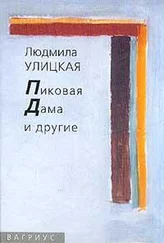
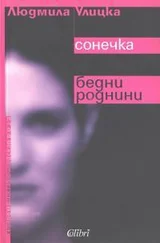

![Людмила Улицкая - Сквозная линия [litres]](/books/393468/lyudmila-ulickaya-skvoznaya-liniya-litres-thumb.webp)
